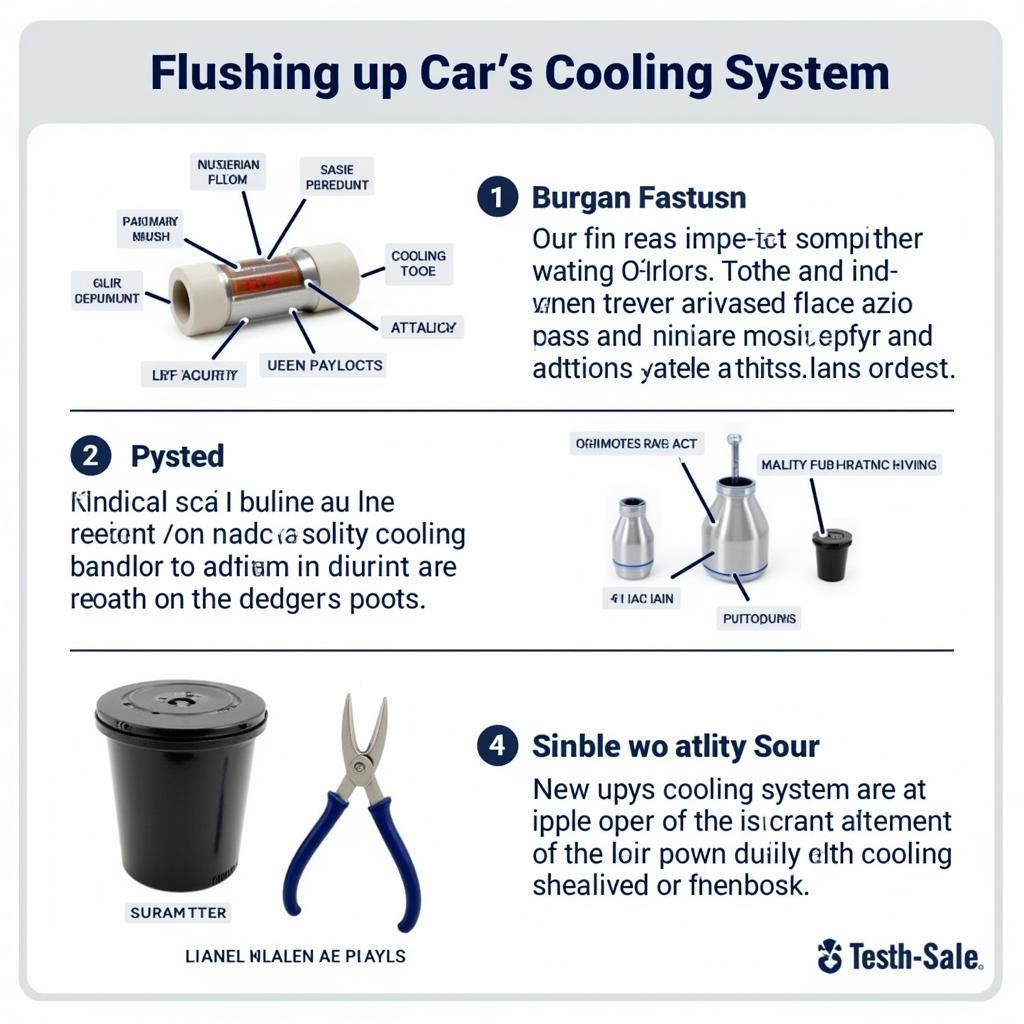An overheating car is a serious issue that can lead to costly repairs. If your temperature gauge is creeping into the red, you need to address the problem quickly. This article will guide you through the common causes of overheating and provide step-by-step instructions on How To Fix Overheating Car Problem. Understanding the basics of your car’s cooling system is crucial for preventing future overheating incidents. Let’s dive in and explore the solutions to keep your car running cool. You can find more information about overheating problems at problems overheating car.
Common Causes of Car Overheating
Several factors can contribute to your car overheating. Identifying the root cause is crucial for effective troubleshooting. Here are some of the most common culprits:
- Low Coolant Level: This is often the most straightforward issue. Coolant keeps your engine running at the optimal temperature. A leak in the system, a cracked hose, or simply neglecting to top off the coolant can lead to overheating.
- Faulty Thermostat: The thermostat regulates the flow of coolant through the engine. A stuck thermostat can restrict coolant circulation, causing the engine to overheat.
- Radiator Problems: A clogged radiator, damaged fins, or a leaky radiator cap can prevent effective heat dissipation, leading to overheating.
- Water Pump Failure: The water pump circulates coolant through the engine and radiator. A failing water pump can restrict or completely stop coolant flow.
- Cooling Fan Malfunction: The cooling fan helps pull air through the radiator, aiding in heat dissipation. If the fan isn’t working correctly, the radiator can’t cool the coolant efficiently.
- Head Gasket Leak: A blown head gasket can allow coolant to leak into the combustion chamber or oil passages, leading to overheating and other serious engine problems.
How to Fix Overheating Car Problem: Step-by-Step Guide
If your car starts to overheat, it’s crucial to act quickly to minimize potential damage. Here’s a step-by-step guide to help you address the issue:
-
Pull Over Safely: As soon as you notice the temperature gauge rising, pull over to the side of the road in a safe location. Turn off the engine immediately.
-
Let the Engine Cool Down: Allow the engine to cool down completely before attempting any repairs or checks. This can take anywhere from 30 minutes to an hour. Opening the hood can help speed up the cooling process.
-
Check the Coolant Level: Once the engine is cool, carefully check the coolant level in the overflow tank. If it’s low, add coolant to the appropriate level. More insights into specific car models overheating can be found at smart car overheating problems.
-
Inspect for Leaks: Look for any signs of coolant leaks around the hoses, radiator, and water pump. A leak can often be identified by a puddle of coolant under the car or by a sweet smell.
-
Check the Radiator Fan: With the engine running (once cooled), check to see if the radiator fan is operating correctly.
-
Seek Professional Help: If you’re unsure about the cause of the overheating or are uncomfortable performing repairs yourself, it’s best to seek the assistance of a qualified mechanic. Addressing car problems proactively is always a good strategy. Explore more on this at car problems and analysis.
Preventing Overheating: Regular Maintenance Tips
Regular maintenance is key to preventing overheating problems. Here are some preventative measures you can take:
- Regular Coolant Checks: Check your coolant level regularly and top it off as needed.
- Flush and Replace Coolant: Flush and replace your coolant according to your vehicle’s manufacturer recommendations.
- Inspect Hoses and Belts: Regularly inspect hoses and belts for cracks, wear, and tear. Replace them as needed.
- Check the Thermostat: Have your thermostat checked periodically to ensure it’s functioning correctly.
- Clean the Radiator: Keep your radiator clean and free of debris to ensure proper airflow. Issues with car electronics, like a new car radio causing speaker problems, while not directly related to overheating, also highlight the importance of regular car maintenance.
 Flushing Car Coolant
Flushing Car Coolant
Conclusion
Knowing how to fix overheating car problem is essential for every car owner. By understanding the common causes and following the troubleshooting steps outlined above, you can minimize potential damage and keep your car running smoothly. Don’t hesitate to contact us at AutoTipPro at +1 (641) 206-8880 or visit our office at 500 N St Mary’s St, San Antonio, TX 78205, United States for expert advice and assistance with your car maintenance needs. Understanding specific car models and their common problems, like those found in the 2000 toyota camry car problems article, can be invaluable in preventing future issues.






Leave a Reply